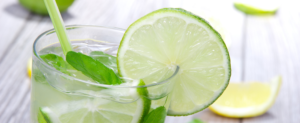Consumers today want to know what’s in the foods and beverages they consume. As a result, third-party certifications surrounding food production and sourcing are changing the game in the food and beverage industry.
Certifications can be a valuable tool to provide increased transparency to business practices and standards. According to a November 2019 study from Linkage Research’s Free From Forum Market Monitor, 95% of Americans are aware of one or more food certifications, and 59% purchase one or more foods with certifications. Also, 78% of consumers said they are willing to pay a premium for a product with a certification. Data shows that these trends continue to grow.
As you start to develop a new food or beverage product, consider if certification is a good fit for your product. Ensuring you start the certification process early on in the product development process is vital. If pursuing certification for your food or beverage product is of interest, we’ve compiled some of the most popular certifications in the food and beverage industry to consider.
USDA Certified Organic
In the United States, “organic” refers to foods or products produced according to United States Department of Agriculture (USDA) regulations. According to the Organic Trade Association, over 82% of U.S. households buy organic products. Organic food sales reached $50 billion in 2019, a 5% increase when compared to 2018, according to the Organic Trade Association (OTA). Certification is especially important for popular organic products so customers can readily verify they are organic.
Vegan Action
The Vegan Action certified logo helps vegan consumers shop without consulting ingredient lists and gets your product in front of a fast-growing vegan market. A new study by Ipsos Retail Performance revealed that the number of Americans following plant-based diets is up 9.6 million over the last 15 years. That’s a 300% increase! If your food or beverage product is vegan, you need to be sure your potential customers can identify it, and this certification is a great way to do that.
Non-GMO Project Verified
An independent study by Consumer Reports found the Non-GMO Project Verified seal to be the only “highly meaningful” label for consumers looking to avoid GMOs. The credibility that comes with Non-GMO Project verification will allow your product to reach a broader customer base, assuring consumers that your products meet the best practices for GMO avoidance.
How the Certification Process Works
Certification considerations need to be discussed early on in the product development process. The formulation needs to meet specific criteria to qualify for certification. The related criteria and decisions impact every aspect of product development, starting with sourcing raw materials that meet the specific certification(s) requirements. Once the raw materials and formulation meet the criteria, the product is submitted to the certifying body for approval. Approval is needed before packaging using a certifying body’s logos can be printed. At times, the manufacturer is involved in the certification process, so an established relationship with a co-packer is needed. Depending on the certification, review, and approval can take up to two months.
How WiseBev’s Certification Expertise Can Help
The data shows that consumers care about food and beverage product certifications. If your potential consumers are looking for organic, vegan, or non-GMO products, certifications may be especially important. While these certifications will help a growing population of customers gain more confidence in your product, seeking these certifications is a complex, time-consuming process. To ensure your product development, and ultimately the launch of your beverage is a success, let our experience at WiseBev help. At WiseBev, we can help you navigate the intricate process of developing your beverage and achieving the certifications that are important to your brand and consumers. Contact us today!







